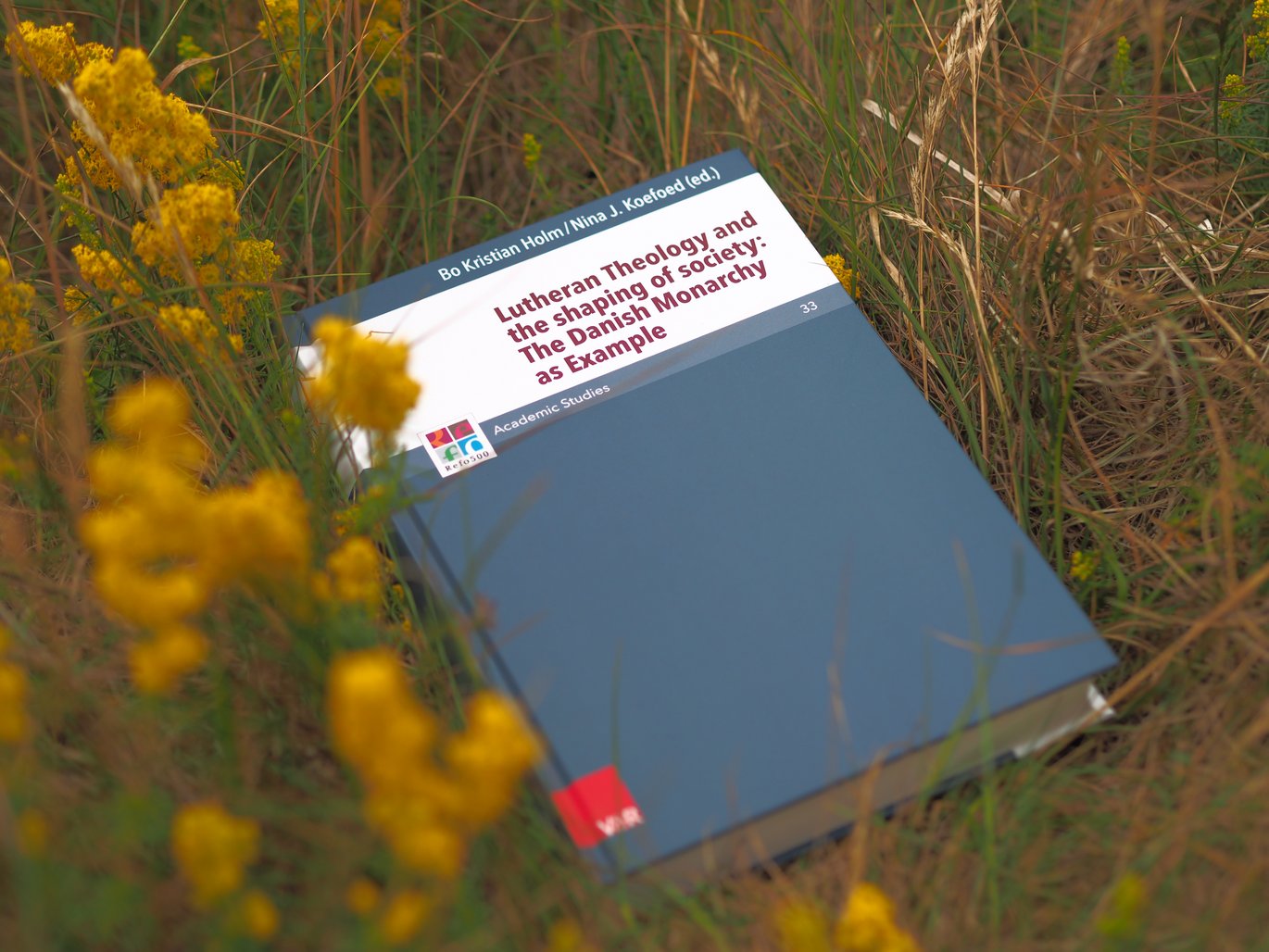Lutheran Theology and the Shaping of Society
The connection between religion on the one hand, and social change and the formation of societies on the other hand, has been steadily attracting interest in recent years. The complex relationship and mutual dependency between confessional forces and societal development lies at the very heart of the interdisciplinary LUMEN-center at Aarhus University.

An interdisciplinary approach to confessional societies
In a newly released book, Lutheran Theology and the Shaping of Society: The Danish Monarchy as Example, the LUMEN-center presents its interdisciplinary approach for an international audience. It is, in many ways, an approached that resembles that which characterised discussion in early 20th century Germany between scholars such as Ernst Troeltsch, Max Weber, and Karl Holl. They argued that in order to analyse the possible lasting formative role of religion in secularised modern societies, interdisciplinary collaboration was pivotal, and a longue durée perspective crucial.
The collaborating authors behind this book consist of senior and junior scholars belonging to the LUMEN-center and visiting guests invited to stay at the center for a shorter or longer period. Inspired by the concept of confessional culture coined by Thomas Kaufmann, this collection expands the concept both temporally, since Denmark has had an uninterrupted history of Lutheranism since the Danish reformation in 1536, and socially, by including the confessional impact on state formation.
Social models in theology
Due to the social dimension of many key theological concepts, the theology of the reformation had the potential to deeply affect everyday practices as well as political institutions. Read in this light, Luther’s 95 theses against indulgences can be viewed as part of a profound critique of a divine-human relation driven as much by the economy as the gospel. Luther and Melanchthon largely use family metaphors to explain the doctrine of justification, thereby rearranging understanding of the involved characters (bride-groom; parent-child). Luther’s reconfiguration of the doctrine of the three estates framed state, church, and household according to the same standards. The fourth commandment, to honour your father and your mother, became model for all social relations, all authorities within the state, church and household being put in the place of parents. An important aspect in Luther’s interpretation of the fourth commandment was not only the obligation to obey, but also the duties placed on parents and authorities.
Influence on political authority
These examples of the social aspects of core theological ideas have shown themselves useful when investigating concrete practices of the household, state or parish. To reach solid conclusions about possible confessional influence, it is necessary to investigate the theological elements of the social. State and government were most obviously influenced by the reformation and the confessional obligation that followed. The relation between theology and politics was close in Denmark in the centuries after the reformation, much closer than almost every other country – with Sweden as the one exception. Theologians became the most important royal and political advisers. Legislation underpinned a societal development in accordance with the Ten Commandments. As a somewhat overseen consequence, the Ten Commandments became, both symbolically and practically, obligations placed on the nobility, and which required them to take on the responsibility of a Christian authority in order to be accepted as legitimate.
Theological impact on everyday life
The contributions to this book also search for theological traces in the household and everyday life. This book provides the first steps into this complex and diffuse area of study. The changed position of the household in Lutheran theology had several potential implications for social practice. The disappearance of the abbey and the idea of life in celibacy as closer to God, turned everyday life in the social world and particularly the household into the place to live a pious life. Devotional practices within the household built on a medieval heritage, but gradually incorporated Lutheran ideals, practices and cultural products, turning the household and family into a centre for confessional influence.
Many characteristics of Lutheran ideas of everyday practice are well known. Marriage gained new importance and became a relation not only meant to raise children and prevent sin, but also for mutual support. Using Denmark as a case study makes it, however, possible to determine how profoundly society was formed according to these ideas because of the long lasting influence on both a political, legislative level and on family and household devotional practices. Traces of the Lutheran understanding of marriage, household and social relations as built on the fourth and the sixth commandment (not to commit adultery) formed Danish society at various levels in the long aftermath of the Reformation. Marriage law changed, and with it regulation of sexual relations and property, understandings of gender and parenthood. Legitimate marriage and legitimate children became pivotal – also to understandings of gender and power – and the earthly family more important than the holy, similarly when it came to property. Relations between parents and children became the concern of the state-authorities and regulated according to the obligations placed on parents through the fourth commandment to raise children as good Christian citizens.
Interdisciplinarity in the long run
Together the different contributions in the book make two important arguments. In order to grasp the complexity of not only religious, but also confessional specific influence on societal development, social practices and everyday life, an interdisciplinary approach is needed. This enables the study of the social implications of core theological ideas and in-depth empirical studies of their interaction with society in different aspects and levels of historical processes. The other overall argument is the impossibility of tracing the full influence of the reformation by looking only at the following decades. The mono-confessional situation following the reformation in Denmark allows for studies that follow the long confessional influence over a much longer time span than reformations studies traditionally do, and this has revealed how gradual and protracted the influence is.
